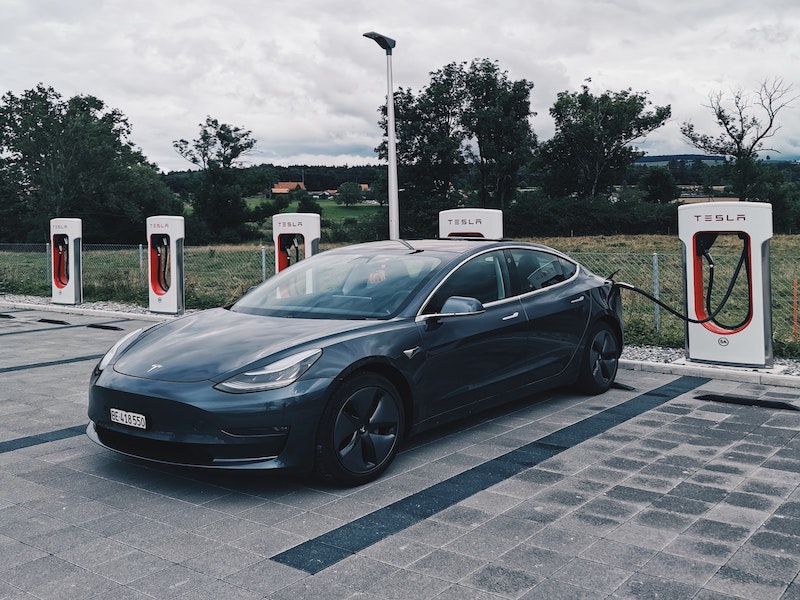Green entrepreneurs, as they’ve been labelled, are at the forefront of driving society towards a low carbon economy. Many, like Elon Musk, have become billionaires as a result. While many are considered heroes at the forefront of the solutions to the climate crisis, if anything, they represent the problem.
Why do I say this? Well, the thing about capitalism is that nothing is worth doing if you can’t make money out of it. While green entrepreneurs provide the illusion of change, many emerging ‘green’ markets aren’t green at all.
To understand why we need to think about how the free market is structured and organised.
Markets are organised through the principle of supply and demand. Where there is a demand, a supply (through a market) is sure to appear.
Within markets, companies (and individuals) are in fierce competition. They are driven to outsell one another to increase revenues and obtain a larger market share. A successful company is one that ultimately makes a profit.
Entrepreneurs are crucial in markets because they read trends and drive change. They spearhead evolution in markets, and in some cases, lead to new markets forming. And because they are often innovators, they tend to become enormously wealthy when their ideas are successful.
The green entrepreneurs paving the way towards a low carbon economy are a prime example of the power of free markets. These innovators have read the market perfectly and created new companies that reflect the prevailing market conditions, leading them to spearhead the so-called ‘green revolution’.
Solutions that make the problem worse
So what’s the big problem, and what does any of this have to do with green entrepreneurs? Well, everything, as it happens. Because the free market comprises thousands of different markets organised around a set of beliefs, this means no one controls the market.
New markets form spontaneously based on demand from within the market. If there is a demand for a good or service, companies will create a supply. In doing so, new markets form.
An issue with this dynamic is that markets only form when a profit can be made in finding a solution to a problem. A market hasn’t been formed to solve homelessness because companies haven’t found a way to make money from the problem. By its nature, homelessness can’t be profited from, if it could, you can bet that a market would form to take advantage of this new opportunity to make money.
Looking at it from the perspective of greening the economy, these new innovative ‘green’ companies aren’t driven by solving environmental challenges. They are driven by profiting from solving environmental problems. The difference in motivations leads to profoundly different outcomes.
In other words, these green markets might not lead to positive outcomes in reducing human pressure on the natural world. The electric vehicle (EV) market illustrates the problem.
A ‘green’ sector
Telsa, Elon Musks brainchild, is seen as a shining light of the power of markets in solving problems, while still creating the potential for profits.
Tesla makes electric vehicles that don’t emit emissions into the atmosphere. In spearheading the transition to EVs, Tesla has become synonymous with an innovative company at the forefront of pioneering solutions to the climate crisis.
The rise of EVs means cars with combustion engines, fuelled by oil that releases fossil fuels, are being replaced by millions of electric cars that have batteries that are powered by the grid.
But, no one has ever stopped to think, what does a sustainable transportation system look like? More importantly, are cars even a part of that sustainable transportation system?
This question has never been pondered because, crucially, there is no one organising the market. And so, the solution that has come about, EVs, may not be sustainable at all.
The EV market remains resource-intensive. You still need to depend on the natural world to make all the pieces of the cars. You still need lots of energy to make the cars, this energy may come from fossil fuels. Then, electricity is needed to charge the cars, that electricity may be generated from fossil fuels. And the batteries are still made up of highly toxic materials.
None of this was considered when forming the EV market.
The assumption is; EVs don’t release carbon greenhouse gases, so they are a clean form of transport. But looking at the car in isolation leads to all kinds of blind spots. From a holistic perspective, the EV market might be just as bad as combustion-engined cars.
Thinking outside the box
EVs are clearly not the only solution to our transportation needs. How about a highly interconnected transport system, where no one owns cars. But when they need to get from point A to B, they can rent a car, and after renting it, they give it back, paying a small fee for the service. A bit like Zipcar, a highly successful car renting company in the UK.
This car renting system could be integrated within a highly integrated transportation network where the dependence on cars as a form of transport is done away with altogether.
What I’m getting at is that the ‘innovation’ of EVs is a by-product of the existing transportation system. The idea that cars may not be part of a sustainable future wasn’t even contemplated for a number of reasons.
For starters selling cars is big business, which is, of course, is the aim of all markets. Then there is the small matter of society having been shaped by an infrastructure that has been developed to drive cars. Giving up cars would mean giving up all of the roads and infrastructure that comes with cars.
On top of that, car ownership is deeply embedded within culture, so moving away from the ownership of cars would involve a radical transformation of the transportation sector.
Markets are not set up to serve this purpose. This is the fundamental problem with free markets; they are not driven by a future vision of a sustainable world. The motivation is to evolve or create markets that still enable the potential to make a profit.
If there was an idea for a sustainable transportation system that wasn’t profitable, no companies would drive the innovation so no new market would form.
Inevitably then the EV, which at first glance appears to be the solution to creating low carbon transportation is a cleaner version of the problem.
They may not be the solution that will lead us towards a sustainable society living within the Earth’s capacity. But because companies can make lots of money from EVs, they are considered the only viable alternative to combustion-engined cars.
A problem without a solution
If we think about it, the intrinsic strength of free markets, where markets form spontaneously to meet demand, is its ultimate weakness when dealing with a problem like a climate crisis that requires a coordinated response.
Humanity faces a massive problem because we are changing the environmental conditions we depend on for the goods and services needed by society. It stands to reason that to solve the problem at hand; we need to formulate a future vision of success. A vision where all the goods and services needed in society are produced within the Earth’s carrying capacity.
What does that vision look like? And are markets the best way to drive us towards that vision?
Well, as visions go, the economist Kate Raworth has created the Doughnut. A safe and just space where humans can thrive will decrease the pressure we place on the environment in the process.
While the Doughnut offers a compelling vision, it hasn’t become well known. And it’s not because there is a better or more compelling vision of sustainability. It’s because there is no agreed-upon vision that each country is moving towards.
Driven by profit, not planet
Each country and company is doing what they think best without the direction a shared vision would inspire.
No one has ever stopped to think, are free markets the best way to solve the challenges we face? They might be, but if they’re not should we need to think about a different organising principle and create an economy that is fit for purpose?
No — this question has never been pondered because if it were it may lead people to question the merits of free markets in solving a problem that requires a coordinated and structured approach. Spontaneity in the face of a system that is highly complex and unpredictable simply won’t get us to where we need to go.
This lack of coordination means that many of the actions taken may hinder progress.
The dilemma we face is that humanity has placed all of its faith in markets to solve social challenges. Without regulation from the government encouraging the formation of specific markets, the solutions that spawn from the market might not be solutions at all. They may even make the problem worse. But, so long as people can make money, that is all that seems to matter.



